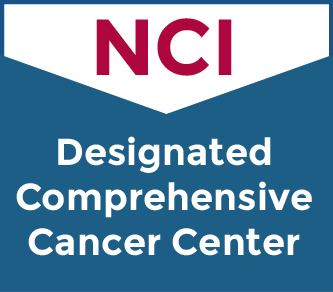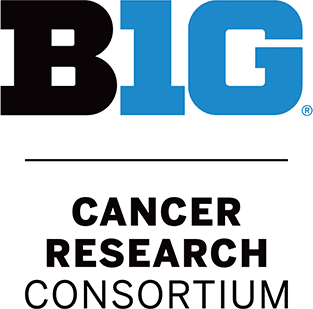Brittany Szymaniak, PhD, CGC, leads clinical genetics in the Polsky Urologic Cancer Institute as part of the Northwestern Medicine Cancer Genetics Program. Brittany graduated from the Northwestern University Graduate Program in Genetic Counseling in 2018 and received her PhD in Genetics from the University of Rochester in 2016. Her doctoral work focused on understanding the consequences of loss of ATM on glial precursor cell biology in the neurodegenerative condition, Ataxia-telangiectasia.
Genetic testing is clinically indicated for men with metastatic, intraductal/cribriform histology, high risk, or very-high risk prostate cancer at any age or men with prostate cancer (any risk group) at any age and Ashkenazi Jewish ancestry.
If patients are concerned about their family histories, even if they do not appear to meet strict criteria for testing, they may still benefit from a genetic counseling referral. A big part of our job as genetic counselors is to evaluate family history to determine if someone qualifies for genetic testing and help facilitate the decision-making process for patients.
A typical cancer genetic counseling appointment consists of the following:
Results are typically available in 3-4 weeks. The genetic counselor will review the results and their implications with the patient.
Currently, BRCA1 and BRCA2 are the only genes with defined prostate cancer screening recommendations – unaffected individuals who carry a pathogenic variant in one of these genes should initiate annually screening starting at age 40. There is currently a recommendation to consider extending this screening to men with pathogenic variants in HOXB13 and other DNA repair genes, such as the Lynch syndrome genes (MLH1, MSH2, MSH6, PMS2, EPCAM) and ATM. However, these recommendations will continue to evolve as our understanding of the magnitude of prostate cancer risk associated with these genes expands.
Ultimately, this testing is not only informative for an individual patient – it can have an impact on the rest of the family.
I am passionate about educating patients about genetic testing, as well as supporting other providers in better understanding genetic testing. I am also on the scientific advisory board for the TARGET (Technology-enhanced AcceleRation of Germline Evaluation for Therapy) study, whose overall goal is to use technology to accelerate access to and the practice of inherited genetic testing for prostate cancer for men with advanced or metastatic disease to inform treatments, clinical trial options, and cancer risk information for families.
I am collaborating with Ashely Ross, MD, PhD, and Greg Auffenberg, MD, MS, to elucidate the current landscape of genetic testing and identify existing barriers for those with advanced prostate cancer across the Northwestern Medicine System. The ultimate goal of this project is to use this information to guide implementation and dissemination strategies to increase testing rates.
I am also invested in improving access to high-quality care as well as to coordinate care for our patients identified to have a predisposition to cancer. I have been involved in the establishment of the EDGe and VHL (von Hippel-Lindau) clinics at Northwestern. These two clinics are just the start of what we envision for EDGe, and I am excited and honored to be a part of this effort.
There are now targeted treatment options based on the results of genetic testing, and I think that will only continue to grow over the coming years. There is still a lot to learn about the prostate cancer risks associated with many of these hereditary cancer genes. More research is needed regarding outcomes for patients with positive results – what are the lifetime cancer risks, do these screening interventions make a difference, what is the psychological impact related to increased screening.



© Robert H. Lurie Comprehensive Cancer Center
of Northwestern University
cancer.northwestern.edu | cancer@northwestern.edu